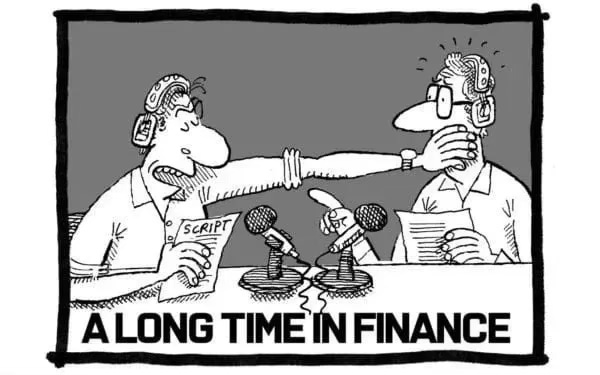Lib Dem leader, Sir Ed Davey, accused Keir Starmer of making "the world's longest U-turn" after he backtracked today on one of the first big policies brought in by his government, and one of its most unpopular: the decision to strip 10 million pensioners of their winter fuel allowance.
Those who have long criticised the policy as an attack on the vulnerable will be relieved, but it may be too late to reverse the political damage.
Speaking during PMQs this afternoon, Starmer confirmed that the government was going to rethink the means-testing of winter fuel payments, announced by Reeves last July: “We want to ensure more pensioners are eligible for winter fuel payments”, he told MPs.
Exactly how many more pensioners will get the money back next winter is unclear. Details are expected in the Autumn Budget.
In July of last year, Reeves announced that the £300 fuel payment would be restricted to all but the poorest pensioners - those eligible for pension credit. The policy meant that the number of pensioners eligible for the payment was slashed from 11.4 million to 1.5 million.
Even amongst those who had favoured a move away from the policy of a universal fuel benefit for pensioners, there was concern that the government’s method of means-testing meant that even some pensioners on the poverty line would be stripped of their payments.
Sure enough, in November, the government’s own modelling, as revealed by Work and Pensions Secretary Liz Kendall, estimated that 50,000 extra pensioners would find themselves in relative poverty as a result of the cut.
Yet when Reeves announced the policy, she insisted it was a “tough decision” but an essential one to plug the much-cited £22 billion “black hole” in the public finances left behind by the Tories.
So what’s changed?
“As the economy improves we want to take measures that will impact on people’s lives”, claimed Starmer today.
Few will disagree with Tory leader Kemi Badenoch’s retort that it was a "joke" to suggest his U-turn on winter fuel payments is a reaction to the UK economy improving.
Starmer’s explanation is comically unconvincing, not just because it comes on a day of unexpectedly bad inflation figures and at a time when the UK economy isn’t by any stretch of the imagination growing more strongly than it was last summer.
It is disingenuous because we all know that what really triggered this U-turn was Labour’s disastrous losses - of 189 council seats - at this month’s local elections. Many of the councillors and mayors who lost - or narrowly clung onto - their seats singled out local anger at the government’s decision to slash the winter fuel allowance for Labour’s poor showing.
This chimes with polling from both More in Common, which found that the Winter Fuel Payment – with almost 90 per cent of awareness the public - is the best-known Labour policy, as well as a Persuasion UK report which concluded that the pensioner fuel cut was the main reason for voters switching from Labour.
But what about the fiscal strain created by Starmer’s U-turn?
Reeves previously claimed that the pensioner fuel cut would save the government £1.5bn each year. It’s impossible to say how big a chunk of these savings have now been lost because the government hasn’t confirmed how many extra pensioners will re-gain access to the winter payment.
Though experts warn that this process in and of itself - of ensuring more pensioners are entitled to the payment without restoring it for everyone - could be logistically complex.
The PM runs the risk of losing credibility for another U-turn, while gaining little political credit for a complicated change that could still leave the majority of pensioners without any help with winter fuel costs.
Caitlin Allen
Deputy Editor
ON REACTION TODAY
David Waywell
The American obsession with scale
Neil Collins and Jonathan Ford
A Long Time in Finance: making plans for British Steel
ALSO KNOW
Trump ambushes Ramaphosa - In an extraordinary Oval Office meeting that is drawing comparison with Zelensky’s trip to Washington, Donald Trump confronted South Africa's leader, Cyril Ramaphosa, this evening over discredited claims of a white genocide in South Africa. Trump told him white farmers are "fleeing South Africa" and played him footage of people chanting "kill the Boer, kill the farmer". Responding to the video, Ramaphosa condemned the chants but pushed back against Trump’s claims of white persecution in South Africa.
Starmer could sanction members of Israeli cabinet - Keir Starmer is thought to be on the verge of sanctioning senior members of Benjamin Netanyahu’s government, amid calls from MPs for tougher action against Israel. Top of the list are understood to be Israel’s far-right national security minister, Itamar Ben-Gvir, and finance minister, Bezalel Smotrich, both of whom have vocally backed the ethnic cleansing of Palestinians in Gaza.
Trump's Golden Dome proposal piques Canada’s interest - The Canadian government confirmed today that it is holding “active discussions” with the US over joining its proposed "Golden Dome" missile defence system, aimed at countering "next-generation" aerial threats. US President Donald Trump unveiled the plan for the new missile defence system on Tuesday, announcing an initial pricetag of $25bn.
Third arrest over fire at Starmer’s home - Ukrainian national Petro Pochynok, 34, from north London, has become the third man to be charged as part of an investigation into alleged arson attacks at properties connected to Prime Minister Sir Keir Starmer.
FIVE THINGS
Foreign Affairs makes the case for seizing Russian assets to fund Ukraine’s defence.
Scientists slash risk of Alzheimer’s, reports The Independent, with a medicine used to treat cold sores.
What is happening inside the Conservative party’s existential spiral? In The New Statesman.
New Lines Magazine on the sanitisation of the psychedelic revolution.
Is Musk becoming the latest government employee to lose his job? The Atlantic looks at the enemies that the tech billionaire has made.





